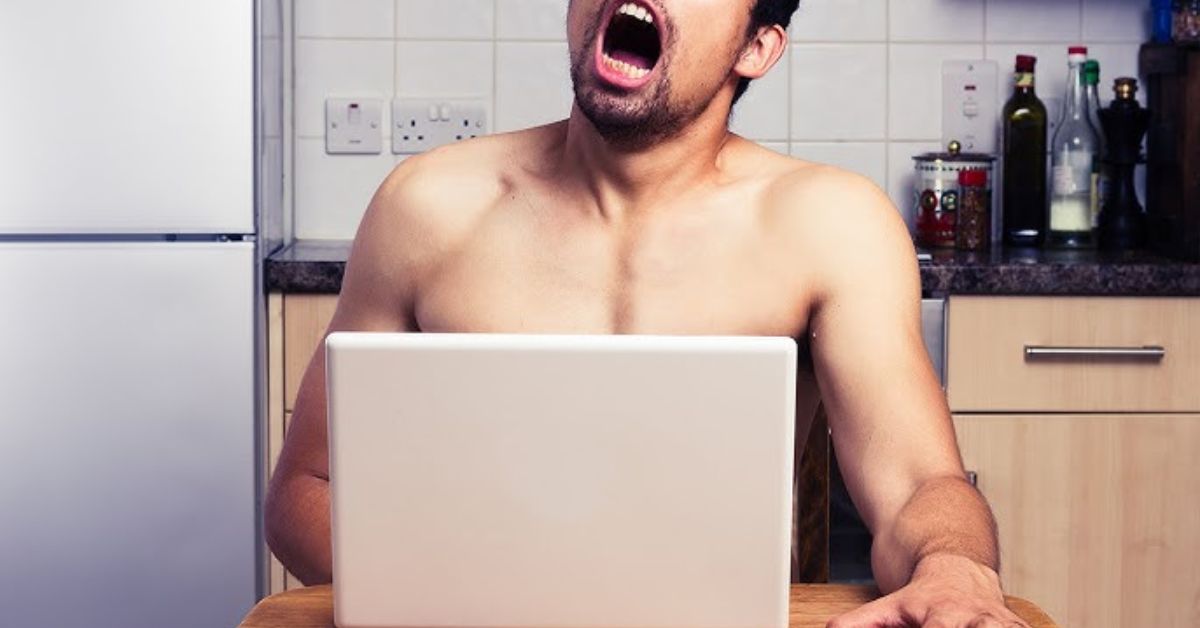Many people young or old, male or female have asked themselves, how to stop masturbating, especially when the habit begins to interfere with everyday life. Masturbation itself is not bad. In fact, it’s a completely normal and natural activity. But when done excessively or compulsively, it can lead to emotional, physical, and psychological struggles.
People who struggle with excessive masturbation often feel shame, guilt, fatigue, lack of focus, social anxiety, or even erectile dysfunction. It can impact personal relationships, work performance, and self-esteem. If you feel like this habit controls you instead of the other way around, you’re not alone.
This guide doesn’t judge. It doesn’t shame. Instead, it offers practical, science-based steps for those who want to regain control over their behaviour. Whether for religious, health, spiritual, or personal development reasons, the need to quit or reduce masturbation is real for many people.
By the end of this article, you will have a step-by-step understanding of how to stop masturbating, build self-discipline, manage urges, and create a healthier, more focused life.
Why is Porn So Addictive?
Pornography delivers a massive dopamine hit to the brain every time you watch it. With each new video or scene, the brain is flooded with pleasure chemicals, making it crave more novelty and intensity. Over time, this rewires your brain’s reward system, causing you to need increasingly explicit content to feel the same satisfaction. This cycle fuels compulsive behaviour, making it harder to stop masturbating because your brain associates porn with immediate pleasure and escape.
The Damage Porn Can Cause
Excessive porn use isn’t just about losing time it damages your mental and emotional health. It desensitises you to real intimacy, reduces interest in actual partners, and creates unrealistic expectations of sex. Many users report a lack of motivation, brain fog, anxiety, and even erectile dysfunction as a result of constant exposure to porn. If your goal is to learn how to stop masturbating, you must address this root cause.
How to Eliminate Porn Use Effectively?
- Install Website Blockers – Use apps like Cold Turkey, BlockSite, or Freedom to block all adult content. This reduces temptation when the urge strikes.
- Delete Saved Porn Content – Get rid of downloaded videos, bookmarks, or hidden folders. If it’s not easily accessible, it’s easier to resist.
- Avoid Soft Triggers – Even non-explicit platforms like Instagram, TikTok, or suggestive movies can trigger the same reaction. Unfollow triggering accounts and limit your time online.
- Stay Busy When Alone – Most people watch porn when they are alone or bored. Replace alone time with hobbies, workouts, or social activities.
- Join NoFap Communities – Platforms like Reddit’s r/NoFap provide community support, daily check-ins, and motivational stories from others on the same journey.
By cutting out porn, you’re not just removing a trigger you’re reconditioning your brain for healthier pleasures. It’s a crucial step toward mastering how to stop masturbating in a sustainable, long-term way.
Handling Withdrawal Symptoms
When you start the journey to stop masturbating, your brain and body may react. This is especially true if you’ve been doing it compulsively for a long time. These reactions are known as withdrawal symptoms. Understanding them helps you prepare, stay calm, and not give up when things get tough.
Common Withdrawal Symptoms
- Increased Urges – For the first few days or weeks, urges may feel stronger than ever. This is your brain trying to get back the dopamine it’s used to.
- Mood Swings – Irritability, sadness, or anxiety may arise. You’ve removed a major emotional outlet, and your brain needs time to adjust.
- Fatigue or Insomnia – Some people feel tired all the time. Others can’t sleep. Your body is rebalancing its hormones.
- Low Motivation – When you stop getting regular dopamine boosts from masturbation, everyday tasks can feel boring or difficult.
- Headaches or Body Aches – Though less common, some people report minor physical discomfort while detoxing.
How to Cope with Withdrawal
Stay Calm and Aware: Remind yourself that withdrawal is temporary. These symptoms will fade within 2–3 weeks for most people. Keep a journal and write how you feel every day. You’ll see your progress clearly.
Use Cold Showers: Cold water reduces sexual urges and calms the nervous system. It also boosts alertness and reduces depression-like symptoms.
Eat Healthy: A clean diet with whole foods helps regulate mood and supports hormone balance. Avoid junk food and caffeine, as they can worsen irritability and anxiety.
Sleep Well: Prioritise 7–8 hours of sleep. Avoid screens before bed and maintain a regular schedule. Your body heals when it rests.
Stay Active: Physical exercise is one of the best ways to replace the dopamine hit of masturbation. It also reduces anxiety and boosts your mood.
By being prepared for withdrawal symptoms, you can stay strong and committed. Understanding how to stop masturbating isn’t just about breaking a habit it’s about healing from the inside out.
Build a Support System
You don’t have to go through this journey alone. In fact, one of the most powerful strategies for learning how to stop masturbating is having a support system. Whether it’s friends, mentors, online groups, or therapists, support provides encouragement, accountability, and connection.
Why Support Matters
When you’re alone, it’s easy to fall back into old habits. Isolation breeds temptation. But when you’re part of a community even a small one you’re more likely to stay motivated. Talking about your struggles can reduce shame and give you clarity.
Types of Support Systems
1. Accountability Partner: This can be a trusted friend, sibling, or someone else trying to quit. You can text or call them when urges hit. Just knowing someone’s watching your progress helps.
2. Online Forums and Groups: Sites like NoFap.com, Reddit’s r/NoFap, or even Telegram groups offer daily challenges, streak tracking, and motivational stories.
3. Spiritual or Religious Groups: If you follow a faith, seek guidance from spiritual leaders or join faith-based recovery groups. Many find strength through spiritual support.
4. Therapists or Coaches: Professional help can offer deep insights, especially if masturbation is tied to trauma, anxiety, or depression. Cognitive behavioural therapy (CBT) is proven effective.
How to Find the Right Support?
Don’t wait until you relapse to seek help. Be proactive. Join a forum today. Talk to someone you trust. Let them know your goal. When someone walks with you, the journey becomes easier.
A support system doesn’t remove the challenge. But it gives you strength when your willpower is low. It reminds you that you’re not broken you’re human. And every step forward is a step toward freedom.
Build Self-Discipline and Confidence

If you want to stop masturbating long-term, you’ll need to build more than just resistance you’ll need self-discipline. Discipline is what keeps you consistent, even when your motivation disappears. Confidence is what makes you believe you can do it, even when you’ve failed in the past.
How to Build Self-Discipline?
- Set Micro Goals – Don’t try to go 90 days immediately. Start with one day. Then 3 days. Then a week. Achieving small wins builds momentum.
- Track Your Progress – Use a journal or an app. Mark each successful day. Seeing your streak grow gives you motivation.
- Avoid “Just Once” Thinking – The idea that you’ll do it “just one last time” is how many people relapse. The more often you say no, the easier it gets.
- Use Visual Reminders – Place sticky notes with your reason to quit on your wall, desk, or phone. Visual triggers remind you of your goal.
- Build a Morning Routine – The first hour of your day sets the tone. Start strong with cold showers, exercise, journaling, or prayer.
How to Build Confidence?
- Celebrate Small Wins – Each day without giving in is progress. Acknowledge it.
- Affirmations Work – Say things like, “I am in control of my actions,” “I am stronger than my urges,” “I choose clarity and discipline.”
- Reflect on Past Successes – You’ve overcome other things before. This is no different.
- Dress Well & Move With Purpose – Simple things like grooming and posture improve how you see yourself.
Discipline without confidence leads to burnout. Confidence without discipline leads to inconsistency. Together, they create transformation. Learning how to stop masturbating is not about being perfect it’s about staying committed, even after setbacks.
Long-Term Lifestyle Changes
Stopping masturbation permanently isn’t just about resisting the urge. It’s about building a lifestyle where the urge naturally fades. That means changing your habits, environment, and mindset over time.
1. Sleep Schedule
Get 7–9 hours of quality sleep every night. Lack of sleep weakens your willpower and increases cravings. Go to bed and wake up at the same time daily.
2. Diet
A poor diet spikes blood sugar and dopamine, causing emotional ups and downs. These mood swings can trigger the urge to masturbate. Focus on:
- Whole foods (fruits, vegetables, lean protein)
- Healthy fats (nuts, seeds, avocados)
- Avoid sugar, processed foods, and caffeine in excess
3. Digital Hygiene
Limit screen time, especially at night. Use content filters. Avoid triggering apps. Replace doomscrolling with podcasts, audiobooks, or nature walks.
4. Exercise
Physical activity reduces stress, builds testosterone, improves mood, and releases feel-good chemicals all of which reduce the urge to masturbate. Even a daily 20-minute brisk walk is effective.
5. Social Life
Spending too much time alone increases temptation. Make time for real friendships. Join meetups, clubs, gyms, or volunteer. Humans thrive in connection.
By designing a life that’s active, structured, and fulfilling, you naturally reduce the triggers and need for masturbation. Over time, it becomes less of a battle and more of a memory.
How to Handle Relapse
Let’s be honest relapse happens. Many people who want to stop masturbating fall back occasionally. The key is not to stay down.
What Is a Relapse?
A relapse is when you give in to the urge and masturbate after a period of abstinence. It’s a setback, not a failure. What you do after matters more than the relapse itself.
What to Do After a Relapse
- Don’t Panic or Self-Hate – Don’t call yourself names. Don’t say “I blew it.” It’s just one moment. Accept it, breathe, and recommit.
- Identify the Trigger – Was it stress, loneliness, boredom, or a certain app? Write it down. Use the relapse to understand your weak spots.
- Reset Your Environment – Take a walk. Delete that app. Move your phone to another room. Do something physical to shift your state.
- Start Fresh Immediately – Don’t say, “I’ll restart tomorrow.” Start now. You’re always just one decision away from being back on track.
- Track Patterns – If you notice you relapse on weekends or during late nights, change your routine during those hours.
Why Relapse Can Help
Each relapse is a teacher. It shows you where to strengthen your boundaries. If you learn from it, it becomes part of your growth. Some people take 10, 20, or even 100 attempts to break the habit but they do it.
Perfection is not the goal progress is. If you can reduce frequency, gain control, and learn from slip-ups, you’re already winning.
Rebuilding Your Identity

Quitting masturbation is not just a physical battle it’s a transformation of your identity. People who succeed long-term do so because they stop seeing themselves as someone who “tries not to masturbate” and start seeing themselves as someone who simply doesn’t do it anymore.
Why Identity Matters
When you say, “I’m trying to stop,” your brain hears trying and expects failure. But when you say, “I don’t do that anymore,” it aligns your choices with your identity. You act according to who you believe you are.
How to Shift Identity
- Use Strong Language – Instead of “I can’t masturbate,” say “I don’t masturbate.” This sends a clear message to your brain: this is who I am now.
- Visualise a New You – Close your eyes and imagine your life 6 months from now: clear mind, high energy, self-control, strong relationships. See it. Feel it. Live it.
- Surround Yourself With Reinforcement – Follow accounts, join communities, and read books that support your new lifestyle. Cut out anything that conflicts with it.
- Track Non-Masturbation Wins – When you say no to urges and instead hit the gym, write an article, or connect with someone, track those wins. They reinforce your new identity.
- Do the Hard Things Daily – Self-discipline is a muscle. The more discomfort you face voluntarily (cold showers, early mornings, workouts), the stronger your belief becomes: “I’m not weak I’m powerful.”
Breaking the habit of masturbation is about changing how you see yourself. When your identity shifts, your actions follow. Soon, saying no won’t be hard. It’ll be natural.
FAQs:
1. Is Masturbation Harmful?
In moderation, no. But if it interferes with your daily life, relationships, or self-image, then yes, it can be mentally and emotionally harmful.
2. Can I Quit Masturbation Permanently?
Yes. Many people do. It’s not easy, but with clear intention, structure, and support, it’s absolutely possible.
3. How Long Does It Take to Stop the Urge?
Most people see a reduction in urges within 21–30 days of consistent discipline. But full rewiring of the brain may take 60–90 days or more, depending on the frequency of the past habit.
4. What if I Relapse Again and Again?
Relapse is part of recovery. What matters is learning from each one. Keep trying. Every attempt builds experience and brings you closer.
5. Will My Confidence and Energy Return?
Yes. Many people report better focus, stronger confidence, and more energy after stopping masturbation, especially if it was compulsive.
6. Do I Need Professional Help?
If you feel truly addicted, depressed, or isolated, professional therapy can be incredibly helpful. CBT, mindfulness therapy, and coaching are great options.
Must Read:
- How to Fix Erectile Dysfunction?
- Homemade ED Remedies That Works
- Best Over the Counter ED Pills That Work Fast
Final Words
Quitting masturbation is not just about self-control it’s about reclaiming your time, energy, focus, and identity. It’s about becoming the kind of person who chooses purpose over pleasure, and growth over guilt.
You won’t be perfect. You might fall. You’ll feel urges. You’ll be tempted. But every time you resist, you become stronger. Every time you journal, meditate, exercise, or call a friend instead of giving in you’re changing your brain.
Learning how to stop masturbating is a journey of discipline, self-respect, and personal power. It’s not about shame. It’s about freedom.
Freedom to be clear-headed. Freedom to focus. Freedom to build relationships. Freedom to live as the best version of yourself.
Start today. You don’t need a perfect plan just a clear decision. One day at a time. One win at a time. You’ve already taken the most important step: you’re reading this.
Now stand up, breathe deep, and begin.
